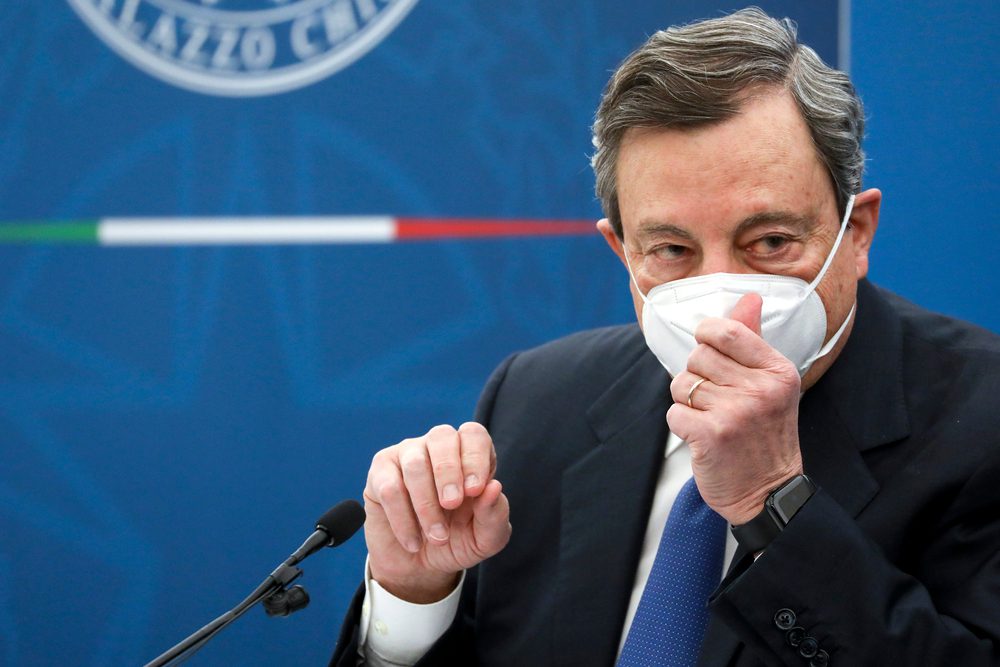
On Wednesday, February 23rd, Italian Prime Minister Mario Draghi promised his country a gradual return to normalcy. After Italy spent over two years combatting COVID-19, its state of emergency would not be renewed on March 31st, he said.
The announcement comes after a drop of cases and deaths in recent weeks, which pressured Draghi’s government to roll back restrictions. First invoked on 31 January 2020, the state of emergency, which allows bureaucratic red tape to be circumvented, was due to expire at the end of March. During the first wave, Italy was one of the worst-hit countries in Europe.
Speaking at the Florentine music festival, Maggio Musicale Fiorentino, Draghi said that after March 31st, schools would remain open, with no FFP2 mask requirement. The quarantine rule after high risk contacts and the obligation to wear a mask outdoors would be scrapped as well.
Additionally, he said the “Super” Green Pass, introduced February 15th—on which The European Conservative reported earlier—would be gradually phased out. This would start with outdoor activities, “including fairs, sports, festivals, and shows” where the pass would not be required.
However, although the Prime Minister’s announcement offered some promise of relief, the reality remains that a great number of people, those over the age of fifty, are still held hostage to the government’s COVID mandates. The highly contentious Super Green Pass, which shows proof of vaccination and booster, or proof of recovery, is still needed to access most places, including public transport. Unlike its predecessor, the Green Pass, it does not retain the option for negative testing, since it was designed to drive up the number of vaccinated. It is among the most draconian COVID-19 policies to be found within European borders.
The situation, at least until the summer months, is dire. For Italian citizens over 50 (a risk category in the eyes of the government), the pass is essential. In order to work, in either the private or public sector, both employees and the self-employed are required to have this Super Green Pass. Those who even attempt to enter offices, stores, or any other places of work without this certification are suspended from their jobs and will not receive an income. Furthermore, they face fines ranging from €600 to €1500; fines for employers who ignore the pass requirement range between €400 and €1000.
As previously announced, the mandate, along with compulsory vaccination for the unemployed over 50, is set to expire on June 15th. Draghi did not specify whether he would lift it before that date. Authorities will however continue to “closely monitor the pandemic situation,” ready to “intervene if there is an upsurge,” he said. “Our goal is to reopen fully, as soon as possible.”
